Washington policymakers have become quite negative on prospects for U.S.-China cooperation on the DPRK issue. The biggest problem, of course, is the current deteriorating U.S.-China relationship and the mutual suspicion of intentions that goes along with that, writes Susan A. Thornton, Li Nan, and Juliet Lee. This piece was first published at 38 North, a project of the Henry L. Stimson Center.
The deteriorating U.S.-China relationship is hindering prospects for meaningful cooperation on persistent security challenges, including the Democratic People’s Republic of Korea (DPRK) nuclear issue. The threat perception gap, different long-term objectives and increasing mutual suspicion between the two major powers continue to widen despite mutual interest in ensuring peace and stability on the Korean Peninsula. Both countries view the other as an obstacle to progress—China is seen as prioritizing DPRK regime security over the nuclear nonproliferation regime and nuclear threats, while the U.S. is seen as a destabilizer plotting to contain China. As the region waits to see if and when North Korea will reengage, the U.S. and China should engage now on overcoming obstacles to cooperation and on a possible road map for sustained denuclearization negotiations.
The following exchange of views between Susan Thornton, Project Director of the Forum on Asia-Pacific Security at the National Committee on American Foreign Policy, and Li Nan, Senior Fellow at the Chinese Academy of Social Sciences, highlights the differing perspectives, mutual suspicions and lingering contradictions between the U.S. and China on North Korea policy and the prospects for future negotiations.
***
Dear Nan,
I regret that we have been unable to connect in person for more than a year, but as you know, the new U.S. administration has completed its North Korea policy review. It will no doubt have considered China’s role in trying to make progress on this intractable issue, and since Americans have been out of touch with Chinese views, I thought it would be beneficial and timely to have this exchange.
As you know, Washington policymakers have become quite negative on prospects for U.S.-China cooperation on the DPRK issue. The biggest problem, of course, is the current deteriorating U.S.-China relationship and the mutual suspicion of intentions that goes along with that. This is a difficult obstacle to overcome, although we are currently cooperating to try to resuscitate the Iran nuclear deal, so such cooperation is theoretically possible, even if difficult.
Beyond the current bilateral difficulties, though, there are a number of American frustrations and suspicions about China’s role in DPRK denuclearization efforts. The most enduring complaint is that China prioritizes stability of the North Korean regime over the denuclearization process and thus the upholding of the nonproliferation regime. China is reluctant to apply sanctions pressure, for example, for fear of impending DPRK collapse. But surely, China can see that there is no danger of sanctions pressure causing collapse, since the DPRK itself sealed the border to outside trade because of COVID-19.
This brings me to another sore point, which is Beijing’s persistently insufficient effort to enforce the United Nations (UN) sanctions regime. Whether limited vigilance at the border crossing or lack of enforcement on ship-to-ship transfers, it seems to many outsiders that Beijing is not serious about sanctions enforcement. Tensions and disagreements in this area are bound to dog any hoped-for cooperation, as Americans view Chinese sanctions enforcement as a litmus test of seriousness about contributing to collective denuclearization efforts.
Lastly, many in U.S. policymaking circles see DPRK and Chinese interests aligned in trying to drive wedges between the U.S. and its Northeast Asian allies, Japan and the Republic of Korea (ROK). The Biden administration has demonstrated keen intent to work with its allies to solve problems, and while China has shown interest in being involved in future DPRK negotiations, the U.S. will be looking at the cost/benefit calculation of Chinese involvement.
Of course, China might have its own reservations at this point about the ability of the U.S. government to conduct a coherent negotiation with North Korea, and many have wondered whether the U.S. goal is still denuclearization. I believe the Biden administration will answer these concerns. The question, as always, will be how to move the North Koreans, a prospect that seems as difficult as ever.
Best,
Susan
***
Dear Susan,
China has also been frustrated with prospects for cooperation with the U.S. due to the deteriorating bilateral relationship. China believes the U.S. is not willing to solve the North Korean nuclear issue, and is thus prepared to tolerate the DPRK threat for the sake of building up its alliance against China. Washington, on the contrary, believes Beijing is not willing to address the nuclear issue because it is using Pyongyang as leverage against America and its allies. Because of these different views, plus mutual suspicion of each other’s intentions, China and the U.S. have not had any impetus to make real progress on cooperation.
China and the U.S. also have different views of the DPRK’s relationship with the other. On the one hand, the United States thinks that the DPRK is a “puppet of China.” Thus, Washington believes the only way to force Pyongyang to submit is by exerting pressure on Beijing. On the other hand, China is worried about the possibility of closer U.S.-DPRK relations for the purposes of containing China, similar to the establishment of People’s Republic of China (PRC)-U.S. diplomatic relations to contain the Soviet Union during the Cold War. Both China and the U.S. have vivid “camp thinking”—or what the Chinese like to call “Cold War thinking”—that allows the DPRK to play us off one another.
China’s strategic interests in the Korean Peninsula are to maintain amicable relations with both Koreas and to ensure a stable and nuclear-free peninsula. China is seriously concerned about the DPRK’s nuclear and missile programs, and that it might encourage other countries in the region to develop its own nuclear programs, which is against China’s security interests. There is no doubt that China takes a strong stance on this issue, as demonstrated by the four China-DPRK summits held since 2018. It is also why China has not conducted military exercises with the DPRK and has never provided military assistance to the DPRK, in contrast with the U.S.-ROK alliance. And much to the DPRK’s dissatisfaction, China’s Ministry of Commerce still enforces sanctions that prevent the exports of chemicals and metals considered “strategic assets” to the DPRK.
Although China has given strong political support to the DPRK, China continues to implement the main sanctions that constrain the sustainable development of the DPRK until it can abandon its nuclear and missile programs. There is no doubt that smuggling across the China-DPRK border has been getting worse, but that does not mean the Chinese government is not serious about sanctions enforcement. Also, there are various other channels in which the DPRK can obtain hard currency, which is another issue that needs to be addressed by the international community.
Currently, the DPRK is fully committed to overcoming the economic bottleneck caused by international sanctions and COVID-19. Under the double blow of the pandemic and economic difficulties, the DPRK has become more conservative, including increased bureaucratic rigidity, a tighter command economy and stricter state control of society.1 As a result, the DPRK has to consolidate its regime by uniting the people and ramping up anti-Western propaganda. Despite COVID-19, the DPRK has shown tenacity, even without substantial economic assistance from China and Russia. This raises the question of how much does the DPRK actually rely on China and Russia.
It is necessary for China and the U.S. to cooperate on the North Korean nuclear issue now, especially as the COVID-19 pandemic continues. In the ROK, the Moon administration is still putting all efforts into engaging with the DPRK to ensure stability of the peninsula. However, the recent U.S.-ROK joint statement made no mention of the prospects for multilateral cooperation on the issue. Words alone, without any real action, will not lead to progress. We missed the chance for multilateral cooperation at the Hanoi Summit, and we are missing another opportunity for cooperation today.
Best,
Nan
***
Dear Nan,
I was very interested to hear of Chinese concerns about a possible U.S.-DPRK axis against China and, in response, I would just say that, of all the things that might keep your government officials awake at night, this should not be one of them. It is positive that, although China suspects that the U.S. is using the DPRK issue as an excuse together with its allies to undermine China’s security, China is nevertheless willing to work with the U.S. toward denuclearization provided the approach is consistent with maintaining the stability of the peninsula. I would like to hear more about what kind of stability you have in mind, but I grant that it is hard to see how a unified Korea of any sort happens without significant turmoil.
I have heard Chinese interlocutors argue in favor of U.S.-China cooperation on the Korean Peninsula, in favor of a road map for denuclearization that would outline a step-by-step approach, and for a simultaneous dual track on denuclearization and addressing North Korean security concerns. You indicate that Pyongyang, while regressing in terms of internal repression and state control of the economy, will be more motivated by economic enticements from the outside once it comes out of the pandemic and that this presents an opportunity. I hope you are right; we are still waiting to see. The problem has always been, though, that such economic enticements pale in comparison to what Pyongyang sees as its existential security shield: nuclear weapons capability. The DPRK has shown incredible resilience in the face of sanctions and has even gone as far as to close its border with China, further isolating itself during the pandemic. It is also the case that such economic enticements are exceedingly difficult to offer and bestow, given the objectionable practices of and low trust in the North Korean regime.
Assuming that North Korea’s bottom line is regime security and that regime security in North Korea does not depend much on the plight of average citizens, I worry that economic incentives are not worth much in the eyes of Kim Jong Un. President Donald Trump gave Kim Jong Un a great deal of respect and face on the world stage, but got nowhere. Has the denuclearization “game” become an integral part of North Korea’s national identity? What enticements or pressure points have we overlooked in the effort to get Kim Jong Un to abandon his nuclear program?
Lastly, like you, I am worried about the regional security environment amid a persistent DPRK nuclear program. We cannot count on other regional states to hold off on their own development of nuclear weapons capability if North Korea’s program appears permanent. In this and other respects, time is not on our side.
Best,
Susan
***
Dear Susan,
As to what stability would look like in China’s view, the first priority is “no chaos and no war.” After the “Fire and Fury Crisis” in 2017, China wondered whether the U.S. could have a consistent policy towards the Korean Peninsula and the DPRK, and whether it prioritized stability on the peninsula as China always has. China believed war could be imminent. Thus, China sees the U.S. as the one trying to destabilize the Korean Peninsula, similar to how the U.S. currently sees China as the destabilizer in cross-Taiwan Strait relations. Also, a unified Korea resulting from the absorption of North Korea by South Korea will probably lead to turmoil. Many North Koreans cannot accept the ROK’s system, and there is the chance that a conservative South Korean government may seek revenge when unified with the North. Therefore, China hopes to achieve unification based on peaceful self-determination, and an end-of-war declaration and peace agreement are critical.
You write that “North Korea’s bottom line is regime security, and that regime security in North Korea does not depend much on the plight of average citizens.” On the contrary, I believe that the North Korean regime does depend on “the people.” Ordinary North Koreans have put pressure on Pyongyang, pushing leaders to reform the system and improve living conditions. The nuclear program has assured citizens that they are safe from outside threats, so the pressure now is to fix the economy. Kim Jong Un’s push for economic development thus relies on maintaining the nuclear program, at least until its conventional military capabilities can catch up with that of the ROK. As Kim Yo Jong stated, denuclearization “is not possible at this point of time.”2
According to the report from the Eighth Party Congress, Kim Jong Un believes the DPRK’s economic weakness mainly results from the system, which shows that there is an impetus for reform. In recent months, Kim Jong Un frequently criticized the system and reshuffled the bureaucracy, showing how ambitious he is in trying to reform the system to make a more stable foundation for the economy. As you said, the DPRK has shown incredible resilience in the face of sanctions, so sanctions are not existential from the North Korean perspective. But since Pyongyang cannot achieve economic success immediately, it will continue to blame external factors, such as sanctions, for limited progress in order to manage expectations.
It is politically difficult for the U.S., and even for the ROK, to offer economic assistance. However, China will provide economic support and encourage the DPRK to reform. Hopefully the DPRK can realize that the only way to achieve sustainable development is to drop its nuclear program and join the international community.
I agree time is not on our side, but I still think we should have patience. I also believe that North Korea cannot permanently keep its nuclear program because if it would like to achieve sustainable development, the sanctions regime is its biggest obstacle. If maintaining the nuclear program becomes useless or a burden, I believe it will abandon the program. Until that day comes, the DPRK will continue to wait and see if the U.S. will demonstrate goodwill before coming back to the negotiating table. In the meantime, China will continue to uphold its position on the denuclearization of the Korean Peninsula and for DPRK-U.S. and DPRK-ROK talks on a peace regime for the Korean Peninsula.
Best,
Nan
-
Footnotes
- “Second-day Sitting of 2nd Plenary Meeting of 8th WPK Central Committee Held,” KCNA, February 10, 2021.
- “Press Statement by Kim Yo Jong, First Vice Department Director of Central Committee of Workers’ Party of Korea,” KCNA, July 10, 2020.
The Brookings Institution is committed to quality, independence, and impact.
We are supported by a diverse array of funders. In line with our values and policies, each Brookings publication represents the sole views of its author(s).
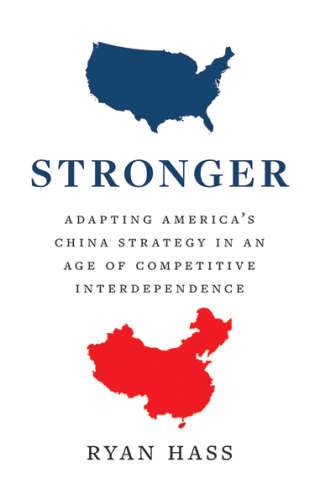
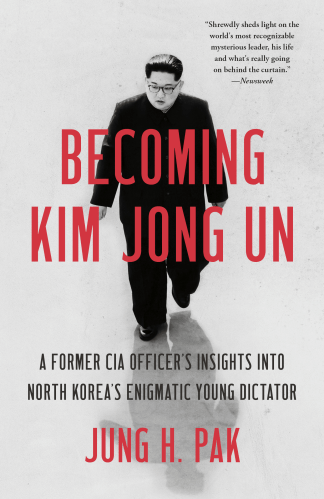
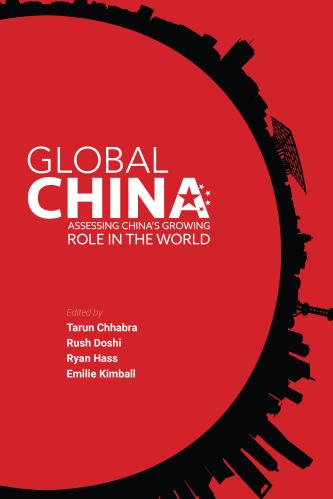
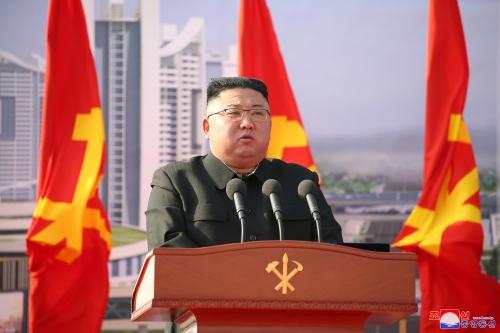
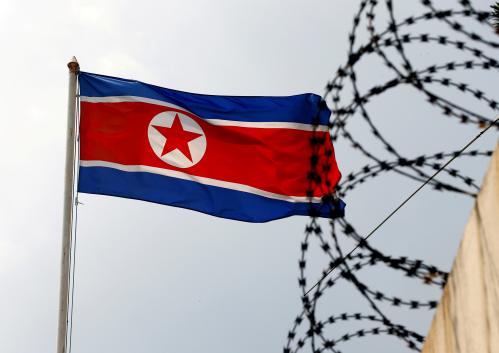
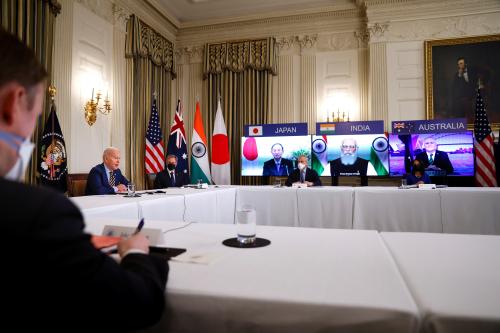


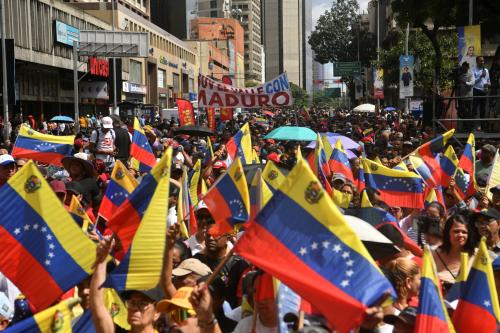
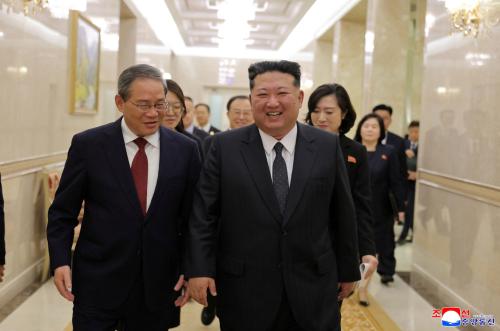
Commentary
Debating North Korea: US and Chinese perspectives
August 27, 2021